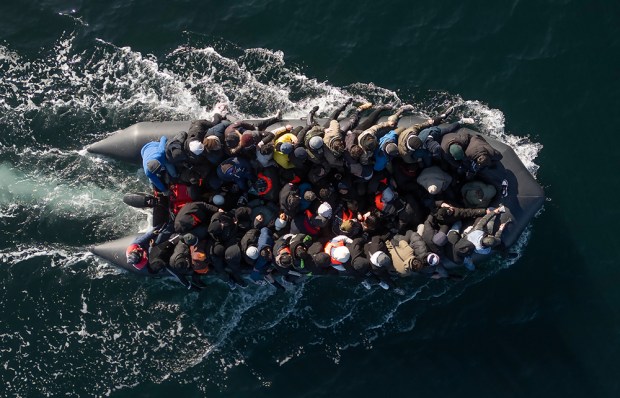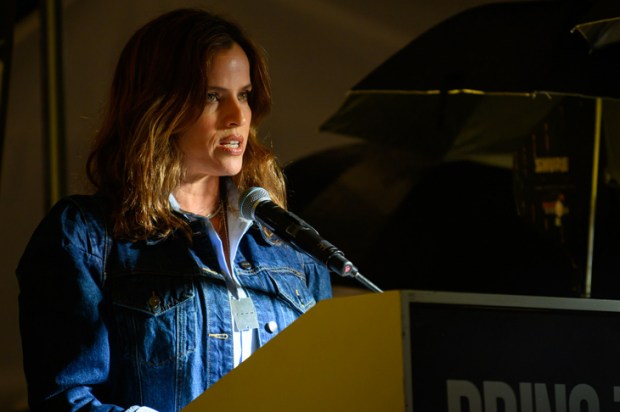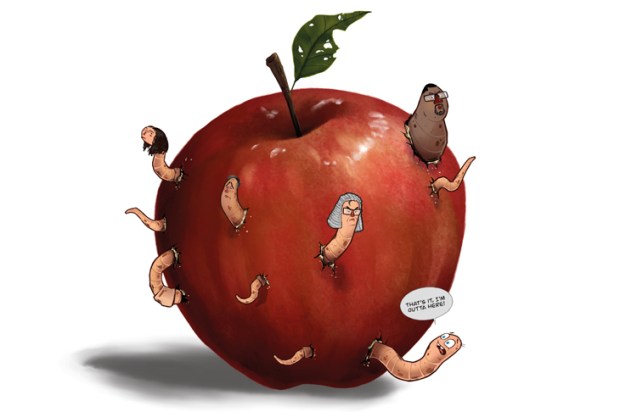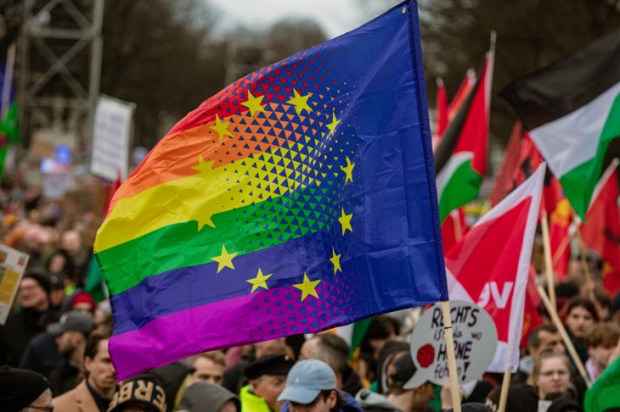Panic appears to be setting in among European elites. Elections for the European Parliament will take place this week (from 6 to 9 June) in the face of increasing popularity of right-wing parties.
Former UK prime minister Gordon Brown warned in the Guardian last month that, ‘a hard-right tidal wave will hit the EU’ and that, ‘Ultra-nationalist demagogues and populist-nationalists are now leading the polls in Italy, the Netherlands, France, Austria, Hungary and Slovakia’, claiming that these groups are ‘forcing the hand of the traditional centre-right parties – which, one by one, are capitulating to ever more extreme anti-immigration, anti-trade and anti-environment positions’.
The European Parliament has generally had a majority of a ‘super grand coalition’ of the centre-right European People’s party (EPP), along with the centre-left Socialism and Democracy (S&D) and Renew Europe.
However, the farmers’ protests that have swept across the continent the last few months are seeing support move to two groups to the right of the EPP: Identity and Democracy (ID) and the European Conservatives and Reformists (ECR). According to the latest polls, these two groups alone could account for more than 20 per cent of MEPs, and win almost as many seats as the EPP alone.
If we add those MEPs from right-wing parties that are currently not affiliated with any group, such as those from Hungarian President Viktor Orbán’s Fidesz, the ‘super grand coalition’ could be unseated for the first time in the history of the European Parliament.
There are hopes that this will lead to ‘changing the EU from within’. However, the mentality of the European elites may ensure this will not happen.
Even if parties on the right do win a majority in the European Parliament, the EU itself has a supranational governance structure in order to keep member states in line. Witness the blackmail the EU engaged in against Hungary recently, after President Orbán wanted to veto the EU’s Ukraine support package, by threatening to sabotage its economy.
Let’s also not forget the attempt by Brussels police to shut down the (conservative) NatCon conference in April.
There is another layer of intrigue. Around the same time as the parliamentary elections, a new European Commission President will be chosen by member states.
The current President, Ursula von der Leyen (known colloquially as VDL) is seeking reappointment. Earlier this month, she refused to rule out collaborating with the ECR group after the election, saying this would depend ‘on the composition of the parliament, and who is in what group’.
This is the same VDL who, until very recently, championed the regulations under the EU’s Green Deal, which aim for the EU to be ‘climate neutral’ by 2050.
As has been written in these pages, this Green Deal was the main reason behind the farmers’ protests, since it was driving them out of business, leaving behind a trail of social and economic devastation.
This is the same VDL who, prior to the election of Giorgia Meloni’s coalition in Italy in September 2022, warned, as Italians went to the polls, that Brussels would ‘punish an Italian government that violates the EU’s social policy consensus’.
As it turns out, VDL has, in collaboration with Meloni, signed agreements with North African states such as Tunisia as an attempt to halt the waves of illegal immigration that have also been the cause of much discontent among ordinary citizens.
Indeed, VDL is now trying to appeal to traditional family values and whitewash her erstwhile support for the EU’s green-rainbow agenda.
‘As a mother of seven, I want my children’s children to grow up in a safe, prosperous Europe,’ reads the lead statement on VDL’s campaign website. She even has a ‘Proud Grandma’ hashtag.
However, VDL’s reappointment is far from assured. She is presently implicated in a scandal over her private text message exchange with Pfizer chief executive Albert Bourla in April 2021 for the procurement of 1.1 billion doses of the Covid vaccine, at a cost of €35 billion.
This secret deal has attracted the attention of the European Court of Auditors, which has been blocked from accessing the messages, and the European Public Prosecutor’s Office (EPPO), which has opened an investigation into the matter.
Since then, ‘Pfizergate’ has ballooned into one of the biggest scandals in EU history. In April 2023, Frédéric Baldan, a Belgian lobbyist specialising in EU-China trade relations, filed a lawsuit against VDL before a Liège court, accusing her of usurping official powers, destroying public documents, pursuing illicit interests and committing corruption, and damaging his country’s public finances.
This led to a contest over which jurisdiction should assume responsibility for ‘Pfizergate’: the Belgian court or the EPPO. Earlier this month, a hearing to decide this question was mysteriously postponed to December, well after the nomination process for the Commission will be concluded.
The drama doesn’t end there.
A few days before the hearing in Liège was supposed to take place, Baldan’s lawyer, Diane Protat, visited the EPPO’s offices in Brussels and Luxembourg to request a copy of its case file – standard procedure from a legal standpoint. However, not only was she told that there was no such file, but on both occasions security was called on her.
Decadence has set in across Europe. Its biggest economy, Germany, is stagnant, reaping the effects of the net zero obsession, championed by the likes of VDL herself. Indeed, the whole eurozone economy is anaemic. Yet the war on farmers still goes on, and the illegal immigration can is constantly kicked down the road.
Moreover, it seems unelected politicians and corporate leaders can cosy up to each other away from prying eyes, unchecked by fundamental concepts such as transparency and the rule of law.
Prior to becoming Commission President, VDL was the most incompetent minister of defence Germany had ever had, who failed upwards when her great protector, then chancellor Angela Merkel, promoted her to Brussels.
After the EU parliament elections, national elections are due in Austria in September and in Germany in February next year. It seems the fight for the soul of Europe has only just begun.
Got something to add? Join the discussion and comment below.
You might disagree with half of it, but you’ll enjoy reading all of it. Try your first month for free, then just $2 a week for the remainder of your first year.













